| |
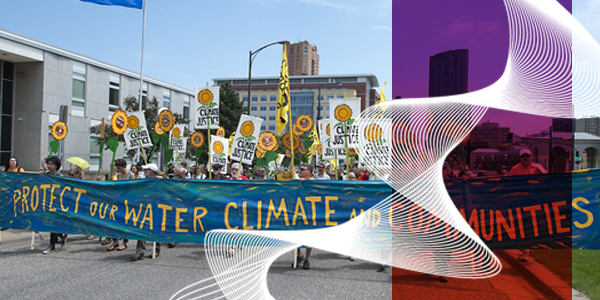
|
| |
|
|
| |
|

|
| |
|
| |
|
Ecofeminisms for the future
#LaVidaenelCentro
Ecofeminisms show the way to project a world with a future. Its different currents, contributions, and debates show us that human beings are interdependent and ecodependent. We need one another to live, we are part of nature and we depend on it. Furthermore, the major contribution made by this perspective is that it calls into question heteropatriarchal capitalist domination as part of a matrix that loots, exploits, and commodifies people and territories. At the same time, it recognizes the central role of grassroots, peasant, and racialized women and feminized subjects in defence of the communitarian and territories against capital’s advance. Despite different contexts, peoples around the world resist the attacks of extractivist companies, states, and transnationalized capital, for the fundamental reason that those attacks are taking their lives. Grassroots feminisms add another layer to that struggle, contributing tools for understanding the capitalist, patriarchal, colonial framework that enables the looting. This also explains why the sexual division of labour places women and feminized subjects in a central place in defending the commons.
Here we share materials to learn about experiences in different regions of the world, as well as to learn more about the debates raised by ecological movements and people’s struggles pointing to the ecological and civilizational crisis. In opposition to the myth of unlimited progress, communities, and especially the women and sexual dissidents within them, demonstrate the path of resistance and the construction of alternatives with bodily and territorial sovereignty.
|
|
| |
|
|
|
| |
|
| |
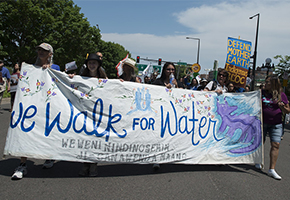 |
| |
| |
Ecofeminism on climate justice
Interview with Julie Gorecki
Climate Crisis: Time for a New Society is a new podcast where writers and activists discuss radical ideas to move beyond the doom of climate breakdown. In this episode we speak about why we need an ecofeminist approach in our organizing and resistance to extractive capitalism.
Read more
|
|
| |
|
|
 |
| |
| |
Climate is not gender-blind
RLS Ecuador
This critical approach brings together knowledge and conceptualizations from feminist praxis in Latin American and other southern regions in the hope that they will nurture debate about integrating a gender approach into climate change action around the world.
Read more
|
|
| |
|
| |
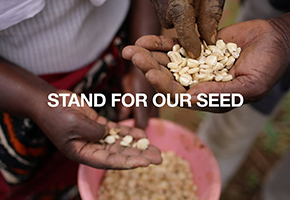 |
| |
| |
Stand for Our Seed
Video
Seed is the birthright of many communities in African countries. It weaves together culture, resilience, resistance, power, and community. But today, this right is under threat. Corporations are stripping African farmers of their ability to save, sell, and exchange their seeds.
Read more
|
|
| |
|
|
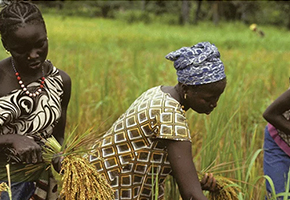 |
| |
| |
Farmer-managed seed systems
RLS Tanzania
Findings show that farmer-managed seed systems cannot function on their own without a strong public sector supporting them. In Tanzania and India growing corporate power and its influence over policy makers pose a fundamental challenge. This recent publication compares the existing strategies.
Read more
|
|
| |
|
| |
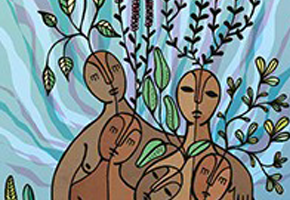 |
| |
| |
Depatriarchalization of energy?
RLS Cono Sur
Reflections on energy self-determination from the perspective of Chilean grassroots feminisms, articulated in the Socio-Environmental Committee of the Feminist Coordination 8M, for a post-extractivist transition.
Read more
|
|
| |
|
|
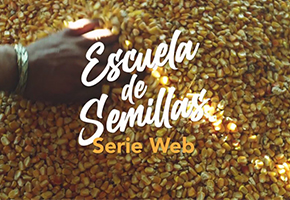 |
| |
| |
Educating with seeds
Web series
Escuela de Semillas (Seeds School) narrates five stories and experiences taking place in Argentina, which reflect the diversity of approaches, scales, and contexts for the defense of criolla (traditional) and native seeds.
Read more
|
|
| |
|
| |
|
Sustaining life in South Africa
Three decades after Apartheid, only a green transformation can ensure well-being and prosperity for all. South Africa.
Read more
|
|
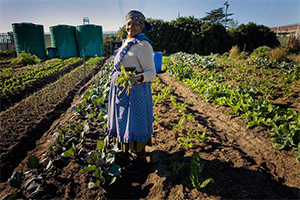 |
| |
|
| |
Media |
| |
|
| |
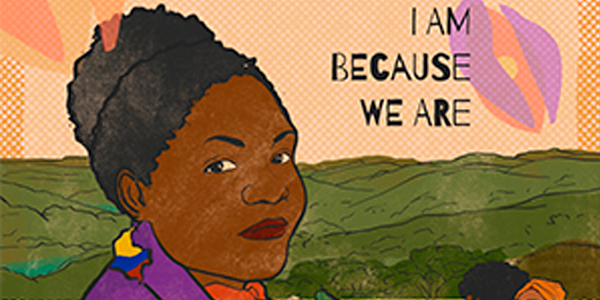 |
| |
|
| |
|
| |
|
Feminists in Institutions
We cultivate feminist and antiracist experiences in politics. We are Seeds of Resistance. We are here to change everything.
|
|
| |
|
| |
|
| |
|
 |
|
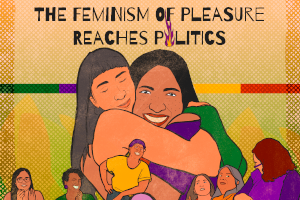 |
|
Visit our Seeds of Resistance IG profile
Experiences of fighting against patriarchal politics or of the “depatriarchalization” of politics led by women – many of whom are Black, Indigenous and/or trans.
|
|
| |
|
| |
|
| |
|
Image credits:
Image 1/Header, (CC BY 2.0), Photo: Flickr/ Fibonacci Blue
Image 2, (CC BY 2.0), Photo: Flickr/ Fibonacci Blue
Image 3, (CC BY 2.0), Photo: Flickr/ Fibonacci Blue
Image 5, Women in Tanzania, RLS.
Image 6, Alliance for Food Sovereignty in Africa and A Growing Culture/ Rosa Luxemburg Foundation
Image 7, Educating with seeds/ RLS.
Image 8: CC BY 2.0, Photo: Flickr/USAID
Image 9, Pilar Emitxin/ Semillas de Resistencia
|
|
| |
|
| |
|
| |
|
|
| |
If you want to unsubscribe from this newsletter (with the email adress {#EmailTo#}) you can do this here.
|
| |
|
|
|
|
| |
|
|










